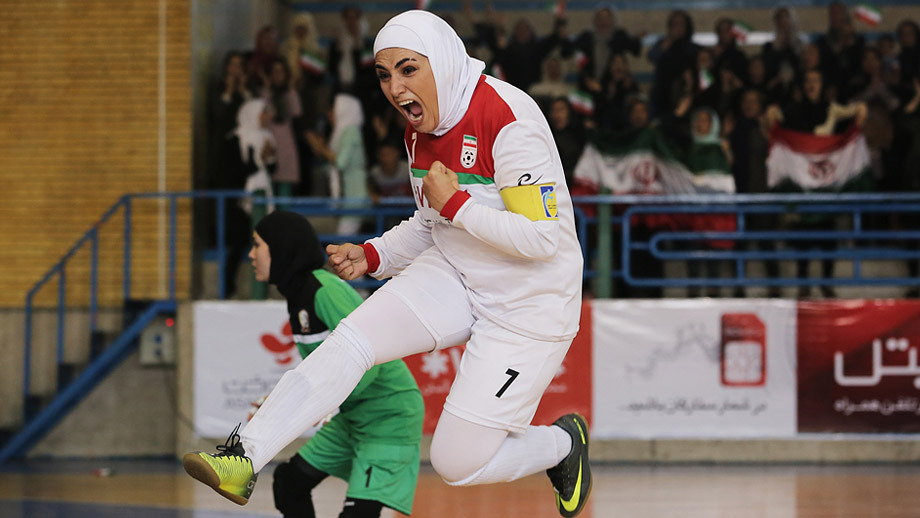By Richard Kuipers
 CREDIT: COURTESY TOKYO FILM FESTIVAL
CREDIT: COURTESY TOKYO FILM FESTIVAL
‘Cold Sweat’
A female indoor soccer player takes her case to court when her husband won’t let her leave the country to play in the biggest match of her life.
Director: Soheil Beiraghi
An angry woman rails against the system in the punchy and timely “Cold Sweat,” a fact-based drama about an Iranian national futsal team member whose husband uses his legal right to prevent her traveling abroad and playing in the most important game of her life. This intelligently written, well performed and emotionally rewarding second feature by writer-director Soheil Beiraghi (“Me”) will enlighten and entertain audiences everywhere. A hit in local cinemas when released in late September, “Cold Sweat” ought to enjoy a long festival life at the very least. French arthouse outfit Sophie Dulac Distribution will screen the film theatrically Nov. 28.
A tale with especially strong appeal in these #TimesUp times, “Cold Sweat” draws from the real-life cases of many Iranian sportswomen whose dreams were dashed when their husbands invoked patriarchal laws. Its success at the local box office comes in the wake of well-publicized protests at the men’s soccer World Cup in June, when fans held up flags calling for an end to the ban on female spectators at the matches. The film contains thematic ties with Jafar Panahi’s “Offside” (2006), about women attempting to sneak into a World Cup qualifier at Tehran’s Azidi Stadium.
In the exciting opening sequences of “Cold Sweat,” a packed house of female fans is watching the national futsal (indoor soccer) team compete for a place in the Asian Nations Cup final, to be held in Kuala Lumpur. After being told by female supervisor Mehraneh Noori (Sahar Dowlatshahi) to “keep your sleeves rolled down and headscarves up, no skin on display,” Iran clinches the win. Largely to thank for the victory is Afrooz Ardestani (Baran Kosaris), the team’s star player and an inspirational captain who’s dedicated 11 years of her life to the sport.
Afrooz’s joy turns to despair when she attempts to board the flight to Malaysia. Her husband, Yasser Shahoseini (Amir Jadidi), a smooth-talking TV star who hosts a program called “The Good Old Days,” has banned Afrooz from leaving the country. The law does not require him to provide a reason, and none is given.
Beiraghi’s screenplay expertly maps out the formidable social, legal and emotional obstacles Afrooz must overcome if she’s going to get to Malaysia in time. The biggest problem is her estrangement from Yasser. The couple have lived apart for a year, with no chance of reconciliation. A no-fuss divorce was expected, but it’s apparent Yasser is more interested in revenge than signing paperwork.
Though everyone around Afrooz including bestie and fellow team member Masi (Hoda Zeinolabedin) knows Yasser is a calculating creep, their advice is to sway him with kind words and flattery. When that strategy backfires and Yasser’s vicious nature comes nakedly to the fore, Afrooz gets seething mad in ways that will have many viewers cheering her on from the sidelines. After taking to social media and angrily confronting Yasser on a busy street in broad daylight, she enlists the help of Pantea (Leili Rashidi), a lawyer and women’s rights advocate.
Kosari (“I’m Not Angry,” “Mainline”) is spot-on as the fiercely determined heroine who risks not just her sporting career but all-important social status. Rashidi is terrific as the fast-talking advocate and Jadidi nails it as the reptilian husband.
Photographed in a clean, unfussy style that’s well suited to the subject matter, “Cold Sweat” is briskly edited and punctuated by a peppy score by prolific composer Karen Homayoonfar. All other technical work is on the money.

